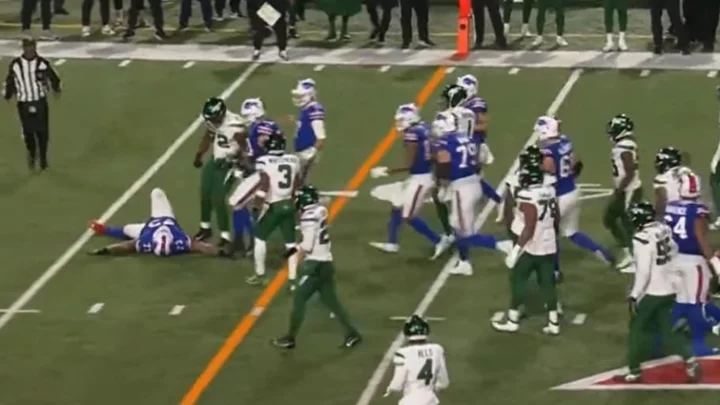PARK CITY, UTAH: Kouri Richins may have penned her own fate, as the alleged husband-killer and children's book author faces a legal dilemma surrounding a confiscated letter she wrote to her mother while behind bars.
Nathan Evershed, a former Salt Lake County prosecutor now working with the Nelson Jones law firm in Utah, expressed his concerns regarding this letter's potential impact on Richins' murder trial.
He told Newsweek, "It would be a bombshell for the defense if the letter is admitted into trial" and that it now presents an "uphill climb" to establish its attorney-client privilege status.
Kouri Richins' April TV interview
In retrospect, a pivotal moment, in this case, was Kouri Richins' April TV interview on KTVX's 'Good Things Utah', where she discussed her husband's passing while promoting her children's book, 'Are You With Me?'
During the interview, Richins provided poignant details about her husband's death and the book's message of coping with the loss.
She mentioned, "My husband passed away unexpectedly last year. March 4 was a one-year anniversary for us. He was 39."
Richins further elaborated, "It completely took us all by shock. We have three little boys, 10, 9 and 6, and my kids and I kind of wrote this book on the different emotions and grieving processes that we've experienced in the last year."
After the interview, the following month, Richins was charged with the murder of her husband, Eric Richins, who had died from a fentanyl overdose. Prosecutors alleged that she had administered the drug to him.
Adding to the complexity of the case, it was revealed that the couple had a dispute about her intention to purchase and renovate a $2 million home in the days leading up to Eric's death.
On March 4, the day before the alleged murder, Kouri signed the closing papers for the mansion and hosted a party with friends.
Kouri Richins' narrative
According to Kouri's account, she was sleeping with her children on the night of her husband's death, and when she returned to their bedroom in the early hours of the morning, she found him lifeless.
Initially, the police accepted her explanation, but troubling details began to surface. Eric had no history of fentanyl use, and it was discovered that Kouri had been securing life insurance policies in his name in the months before his death.
Furthermore, she initiated a legal battle against his family to claim an estate valued at over $3.6 million.
Richins, a 33-year-old mother of three and a Mormon has been held in Summit County Jail in Utah since her arrest on May 8. She faces charges of criminal homicide, aggravated murder, and possession of controlled substances, but she vehemently denies these allegations.
Summit County detectives' affidavit revealed that her housekeeper had supplied her with fentanyl pills before Eric's death, and she allegedly paid for them.
However, the case took another turn for Richins and her defense team when a search of her jail cell in September revealed a six-page letter addressed to her mother.
In this letter, she allegedly instructs her brother, Ronney, to concoct a story suggesting that Eric obtained illicit drugs in Mexico. Her lawyers claimed that the letter was intended for her attorney, seeking to protect it under attorney-client privilege.
Debating the letter's admissibility
Legal expert Evershed voiced his concerns regarding the potential admission of this letter into the trial.
"In this case, the contents of the letter do not, as far as I can tell, establish that it was either made for the purposes of facilitating legal services or that it was between the client and attorney," Evershed told Newsweek.
"Ms Richins' claim that it was a fictional narrative further undermines the argument that it was attorney/client communication."
The debate over whether the letter qualifies as attorney-client communication is a critical aspect of Richins' defense strategy. Richins' legal team is expected to continue their efforts to have the letter excluded from the case, emphasizing its privileged status.
"The importance of this letter is underscored by the intense litigation now surrounding it," Evershed said.
Drawing from his past experience as a prosecutor, Evershed stressed the significant impact that a defendant's attempts to tamper with witnesses can have on a jury's perception of the case.
"In my experience, words from a defendant are incredibly material to a jury, especially directives to other witnesses," he said. "Should it be allowed into evidence, the state will have a field day with the letter."









